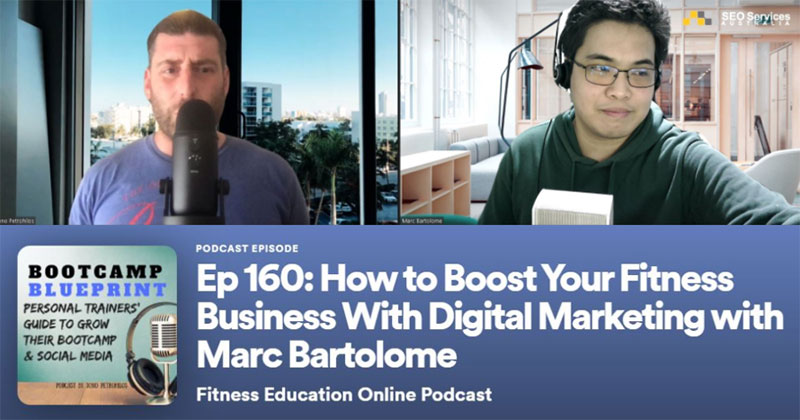Table of Contents
Every eCommerce business wants to see their website rank at the top of search engines like Google, Yahoo and Bing. There are two key ways to help you rank higher: on page SEO and off page SEO for eCommerce.
On page SEO is often the easier one to do as it only involves optimising everything on your website: keywords, anchor tags, web copy, meta tags, page/post titles, meta descriptions and internal linking. Off page SEO is the trickier one as it refers to everything you do outside of your website: link building, influencer outreach, directory listings and more. Off page SEO helps search engines understand what users think about your products and website. Even having just a few links from quality and relevant sites with high authority levels greatly increase your chances of ranking higher.
In our experience, these eight off page SEO techniques for eCommerce websites are the easiest to implement and offer the best ROI.
Top 8 Off Page SEO Techniques for eCommerce Websites
1. Directory Listings
One way eCommerce businesses, especially local ones, can get found online is through inclusion in directory listings. This is one of the more common off page SEO techniques for eCommerce websites as Google is inserting itself between users and local business listings more often than before.

Getting your eCommerce business name, address and phone number (NAP) information listed on directories, citation sites, and online business listing sites not only helps improve your visibility, but the backlinks from these sites also benefit your SEO strategy.
Here are a few things you should put in your company listing once you’re added to a directory:
-
- Consistent NAP. If you update or add your eCommerce site on multiple business listing sites, make sure the company information you provide is the same across all directions.
- Link to your website. Backlinks are crucial to your brand website’s domain authority. Try adding a tracking link at the end of the URL so you can view just how much traffic your website receives from the business directories.
- A company description. Make sure you have a detailed description of your business that reflects your brand’s mission, values, and culture.
- Multimedia. As much as possible, provide online users with a visual taste of your business through photos and videos of your employees and daily operations
2. Review Sites
Many eCommerce businesses ask customers to leave reviews so that they can build trust among prospects. However, having reviews live on third-party services is also one of the most effective off-page SEO techniques for eCommerce websites.

Search engines, especially Google, love reviews because they generate clicks and engagement. When determining search engine rankings, review signals are listed as the fifth most important determining factor Review signals refer to the quality, quantity, frequency and diversity of product reviews. These signals are sent to search engines, which are then used to rank your site. The better you score in the review signals, the higher your search rank.
That’s why many online shops have added reviews to their content, like on Facebook and Yelp. To boost your ranking, you want as many quality reviews as possible. Consider asking loyal patrons and satisfied customers to leave reviews for you on Yelp, Facebook, or Google My Business. You can also reply to your customers’ reviews to build trust and increase engagement.
3. Social Media Activities
There are many compelling reasons to include social media marketing as one of the effective off-page SEO techniques for eCommerce websites. For one, every share, mention, and hashtag that includes the name of your business or website is useful in boosting your off-page SEO efforts. Each social media activity has a limited lifespan and may have a minuscule effect, but if you combine all those activities together, they can be a powerful ranking factor.

Another reason that makes social media marketing an effective off-page SEO technique for eCommerce websites is that Google (and other search engines) are starting to include social media content directly in search results. This means that you not only gain overall optimisation for your website, but you also receive brand name recognition and placement results from a quality review on Facebook or a tweet from a supporter.
4. Social Bookmarking
Here’s a term many online marketers aren’t familiar with: social bookmarking.
Social bookmarking is the method of submitting specific web pages to social bookmarking platforms such as Reddit, Pinterest, Digg, StumbleUpon, and many more. Once you submit your website, users can bookmark specific articles or product pages. As the bookmarks are usually public, they can be viewed by other site members.

Social bookmarking is one of the best off-page SEO techniques for eCommerce websites if you want to get visitors instantly, especially quality traffic. This is because people who reach your site from Reddit or Digg are generally there because your article or web page appeared when they were searching for topics they’re interested in.
Additionally, when your website is bookmarked, a link is made and indexed by search engines, earning you credibility. Content that’s bookmarked a lot will show up higher in search engine results.
5. Guest Blogging (Content Marketing)
Guest blogging is a link-building technique used by many in the SEO industry. However, Google has discouraged guest blogging because the practice can be spammy, especially when the main intent is to build large-scale links that refer back to the author’s site.

However, there is a work-around. If you want to use guest blogging as an effective off-page SEO technique for your eCommerce website, focus on informing and educating your users by adopting content marketing strategies.
Guest blogging focuses on obtaining backlinks which often leads to keyword stuffing, poor quality content, and article spinning — which are the sorts of behaviour Google hates. In contrast, content marketing focuses on writing content that’s valuable to users. It’s not just about building links; it’s about creating engaging and relevant content that also happens to generate links to your website.
For instance, if you sell cookware, consider creating a series of vegan recipes and then reach out to leading vegan blogs. Produce articles that help people make better purchasing decisions, complete specific tasks, or learn a new skill. These are all shareable, quality content that will easily increase your website’s traffic.
6. Q & A Websites
Writing great content and giving it to people who are searching for answers is a great off-page SEO technique for eCommerce websites. Think of Q & A sites like Quora and Stack Overflow. People on those sites ask for help on all kinds of issues, including ones relevant to your industry.

You can get a boost when you write an article that answers a specific question and leave a link back to your site. Visitors can then find your content easily and dominate certain niche categories.
7. Partners and Influencers
Industry influencers are trusted individuals who shape an engaged audience’s opinions. People tend to trust the word of others when it comes to purchasing products or choosing services.

There are dozens of ways that eCommerce websites can use this off-page SEO technique so that it’s beneficial for both your brand and the influencer. For instance, you can:
-
- Create valuable content for their platform
- Have them review your products
- Create fresh, high quality content together
- Give special offers or discounts for their audience
- Conduct a survey
- Provide influencer with exclusive access to an event in return for a positive review
- Coordinate a product launch
When you have a successful partnership with an industry influencer, you increase brand awareness and get valuable backlinks that generate referral traffic.
8. Newsletters
Newsletters are one of the quickest and easiest off-page SEO techniques that eCommerce websites can include in their online marketing strategy. They allow you to interact with your audience and promote your new content, products, or events.
Generally, you should send newsletters according to the local timing of your audience. If you give them timely and value-adding information, they’re more likely to read your newsletters often. So that they’re easy to digest, try keeping your newsletters short but full of relevant and interesting information. The newsletter’s design is also important. Here are some tips on newsletter design that boost clicks and engagement.

Additionally, getting featured in newsletters from external publishers is also a powerful marketing/branding strategy. It allows your business to distribute content to a larger audience, helping generate more traffic and increase your existing followers.
Off-page SEO techniques are a must for all eCommerce websites, regardless of industry. It’s harder than on-page SEO because many factors aren’t entirely under your control, but that’s the whole point. The harder it is to earn quality links, the more reliable it is as a ranking factor.
Keep one thing in mind: the more high authority sites that talk about you and refer you, the more chances you have of ranking on top.
But while off-page SEO is incredibly important, don’t forget about your on-page activities as well. No matter how strong your off-page strategy is, you still won’t get a high ranking on search engine results without proper on-page SEO. The two need to work together so that you can reach the top of Google.
9. Podcasts
As of April 2021, there are over 48 million podcast episodes. Until recently, podcasts and other types of audio content were not directly seen as SEO assets. Creating podcasts was more of a way to get your business out there, build brand awareness, promote expertise and connect or network with others in the industry.

Over the past few years, Google has talked about making audio searchable. The search engine giant has announced that podcasts will soon be indexed and since May 2019, podcasts have started to trickle into organic search results.
How can you make your podcast SEO-friendly?
One great way is to interview industry leaders and influencers in your niche. Their followers and supporters will likely listen to your podcast if someone they trust will share valuable information on your platform. This is great if you’re just building your way up the ladder and to get your ideal subscriber’s foot in the door.
You can also incorporate your podcast into your blog posts. There are various ways to go about this. First, you can create a blog post that talks about a podcast episode. After recording the episode, repurpose it into a highly valuable blog post that you can optimize for SEO. Another good option is to insert podcast episodes into existing blog posts that are relevant to the topic. These techniques make the most of your blog’s on-page SEO and also gets your podcast in front of more potential subscribers.
10. Affiliate Marketing
SEO affiliate marketing is all about getting your SEO on point so that it bring traffic to your website or blog, traffic that you can convert into sales. While most successful affiliates invest in paid adverts and external promotions, SEO can reduce your reliance on paid promotions and cut your ad spend.

To make affiliate marketing work for you, find a high-authority website in your industry or niche and write a guest post for them. This is an excellent way to connect with a broader audience and gain more relevant traffic. Ultimately, it will help you make more money too.
You can also look for content that blogs in your industry typically link to. Looking at high-quality editorial content will give you an idea of what people are linking to. You now have a linkable asset and you can then reach out to other websites in your niche for link building. Additionally, try asking your affiliate partners to add links to your website. Don’t stop at just your niche. Try to think of other related brands where your content will fit in well.
Off-page SEO techniques are a must for all eCommerce websites, regardless of industry. It’s harder than on-page SEO because many factors aren’t entirely under your control, but that’s the whole point. The harder it is to earn quality links, the more reliable it is as a ranking factor.
Keep one thing in mind: the more high authority sites that talk about you and refer you, the more chances you have of ranking on top.
But while off-page SEO is incredibly important, don’t forget about your on-page activities as well. No matter how strong your off-page strategy is, you still won’t get a high ranking on search engine results without proper on-page SEO. The two need to work together so that you can reach the top of Google.
